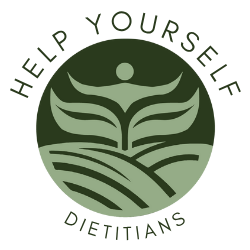Diverticular Disease
How our dietitians can help
- Guidance and support: We guide you along your path of discovery from diet at diagnosis to preventing diverticulitis, managing and recovering from flares.
- The good news: Diet can play a big role in preventing flares and managing symptoms.
- Get to know your gut: Symptoms of diverticular disease can come and go, or it can overlap conditions like IBS – we customise our guidance to your gut’s unique characteristics and your food preferences.
- You do you: The amount and type of fibre you need can vary depending on symptoms. We aim for you to know your gut, reduce symptoms without unnecessary food restriction.
- Food enjoyment: Our dietary approaches accommodate fear of food or eating that may result from long term or severe gut symptoms or fear of triggering symptoms.
- Nourish and nurture gut health: We focus on minimising symptoms in parallel to building gut health using whole food-based approaches
- Holistic care: Often, dietary management works when combined with other lifestyle strategies, which we will explore with you.
- Expert empaths: Drs Kerith Duncanson and Georgina Williams bring deep research experience and a compassionate, individualised approach to every client.
More about Diverticular Disease
Dietary Management
Diverticular disease is the overall description for two stages of the one condition, each with different dietary approaches, which can make it very confusing to manage on your own. The first stage is diverticulosis (small pouches in the wall of the colon), which is very common, and is often completely asymptomatic but identified during colonoscopy. Asymptomatic diverticulosis can be managed with an anti-inflammatory style, moderate to high fibre diet.
If the pouches become inflamed or infected, it is called diverticulitis and may be painful and require antibiotics or other medical treatment. Dietary management of diverticulitis may mean you need to temporarily adjust food textures and the types or amounts of fibre you eat. The good news is that your diet is one aspect of diverticular disease management you have control over, and it can make a big difference. Your dietitian will help you make simple food swaps to reduce your risk of flare-ups—without cutting out more than you need to. We focus on practical, personalised advice that supports your gut health and matches your lifestyle.
By consulting with our Help Yourself dietitians, you will benefit from the learnings from their gastro-dietetics research and collaborations, which they integrate into clinical dietetic practice to support you feel confident in your approach to food and eating. No more confusion or mixed messages – just clear, supportive guidance to help you take control of your health.
Our Diverticular Disease publications
- Cameron, R., Duncanson, K., Hoedt, E.C., Eslick, G.D., Burns, G.L., Nieva, C., Keely, S., Walker, M.M. and Talley, N.J., 2023. Does the microbiome play a role in the pathogenesis of colonic diverticular disease? A systematic review. Journal of gastroenterology and hepatology, 38(7), pp.1028-1039.

Book with Kerith or Georgina
Kerith and Georgina specialise in various gastrointestinal conditions and symptoms. Their consulting work with clients complements their research in gastrointestinal nutrition.
Face-to-face appointments
Kerith offers appointments at Newcastle Gastroenterology and Health HQ Salamander Bay.


Contact Us
Email – office@helpyourself.com.au

